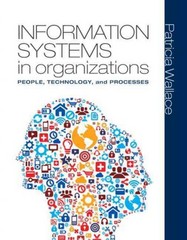Answered step by step
Verified Expert Solution
Question
1 Approved Answer
South Africa is desperately in need of Ethical leadership In the decade since the onset of the phenomenon of state capture in South Africa, we
South Africa is desperately in need of Ethical leadership
In the decade since the onset of the phenomenon of state capture in South Africa, we have learnt some painful lessons
about corporate governance in both the public and private sectors These lessons are not unique to South Africa or to
stateowned enterprises SOEs in developing countries generally. For well over a generation the trend in public
administration and business in developed countries has been to subvert systems of good governance and accountability.
To sustain good performance, a rulesbased application of business ethics developed mainly in response to the growing
rate of corporate wrongdoing. At the same time, however, the application of these measures has not yielded the desired
results. The growth in what in common parlance is known as transactional leadership of executive authorities within
corporates has tended to erode the power of boards by subverting dysfunctions and loopholes in the governance
system.Sadly, some NPOsNGOs formed with noble intentions and premised on ethics and righteousness have not
escaped the pervasive malignancy and greed of corruption.
The revelation in Parliament that thousands of public servants have been illegally receiving social grants every month
shows we still have a long way to go towards instilling a culture of ethics in the public service. Earlier this year, it was also
found that around employees on the government payroll were irregularly paid the Covid Social Relief of
Distress grant. It is common knowledge that applicants with other sources of income do not qualify for this grant. It is also
selfevident that those who receive an income from the state are not eligible to apply.
Some people employed at national and provincial government submitted applications in a bid to topup their
salaries with money meant for the poor. Given the extent of need in the country, one that our public servants know too
well, this wilful intent to steal from the public purse is unforgivable. Government is now stepping up its efforts to prevent
this kind of abuse and act against anyone in the public service involved in wrongdoing.
This month, government launched a new Public Administration Ethics, Integrity and Disciplinary Technical Assistance
Unit. The unit will build capacity within public bodies to institute disciplinary proceedings in cases of misconduct and
cooperate with other organs of state in holding those responsible to account.
The unit will refer corruption cases to government's AntiCorruption Task Team and follow up with departments to ensure
criminal cases involving public servants translate into disciplinary cases. Working with the multiagency Fusion Centre,
the unit will help identify employees in priority cases investigated by law enforcement authorities.
Another important aspect of the unit's work will be institutionalising ethics and integrity in the ranks of the public service. A
few public servants have over the years taken the view that doing business with or unduly benefitting from the state is
permissible for them, their friends and their families, provided there has been no illegality. We must do everything we can
to change this attitude.As we work to end corruption, there must be equal focus on inculcating ethical behaviour, because
what may not necessarily be illegal can be unethical and unbecoming of a public servant.The new unit will set norms and
standards on ethics, integrity and conduct. It will also build the capacity of departments to discipline officials found guilty
of misconduct. Last year, more than employees were trained as presiding officers and initiators.Building an ethical,
capable state continues to be a focus of this administration.
As a number of scandals involving public servants illegally benefitting from the state have shown, the process will be
difficult and will take some time. We are nonetheless committed to stay the course.
A capable state is the foundation for the attainment of all our national priorities. Without improving accountability and
promoting ethical conduct, none can be achieved.
The vast majority of our public servants are committed, lawabiding and ethical.
The persistence of unethical and illegal business activities by top managers in SOEs and corporate organisations is a
pointer that a code of ethics is not enough for an organisation to be ethical. For the poststate capture period in South
Africa, the chief governance issue for government and corporate South Africa will not be how to enforce rules but how to
ensure we cut back dependence on their enforcement.
A critical issue facing South Africa and the world that blocks possibilities for economic development and shared growth
is the inadequate level of ethical consciousness and ethics management in the business domain.
Strengthening ethical leadership by mainstreaming ethical behaviour throughout the culture of organisations
Step by Step Solution
There are 3 Steps involved in it
Step: 1

Get Instant Access to Expert-Tailored Solutions
See step-by-step solutions with expert insights and AI powered tools for academic success
Step: 2

Step: 3

Ace Your Homework with AI
Get the answers you need in no time with our AI-driven, step-by-step assistance
Get Started


